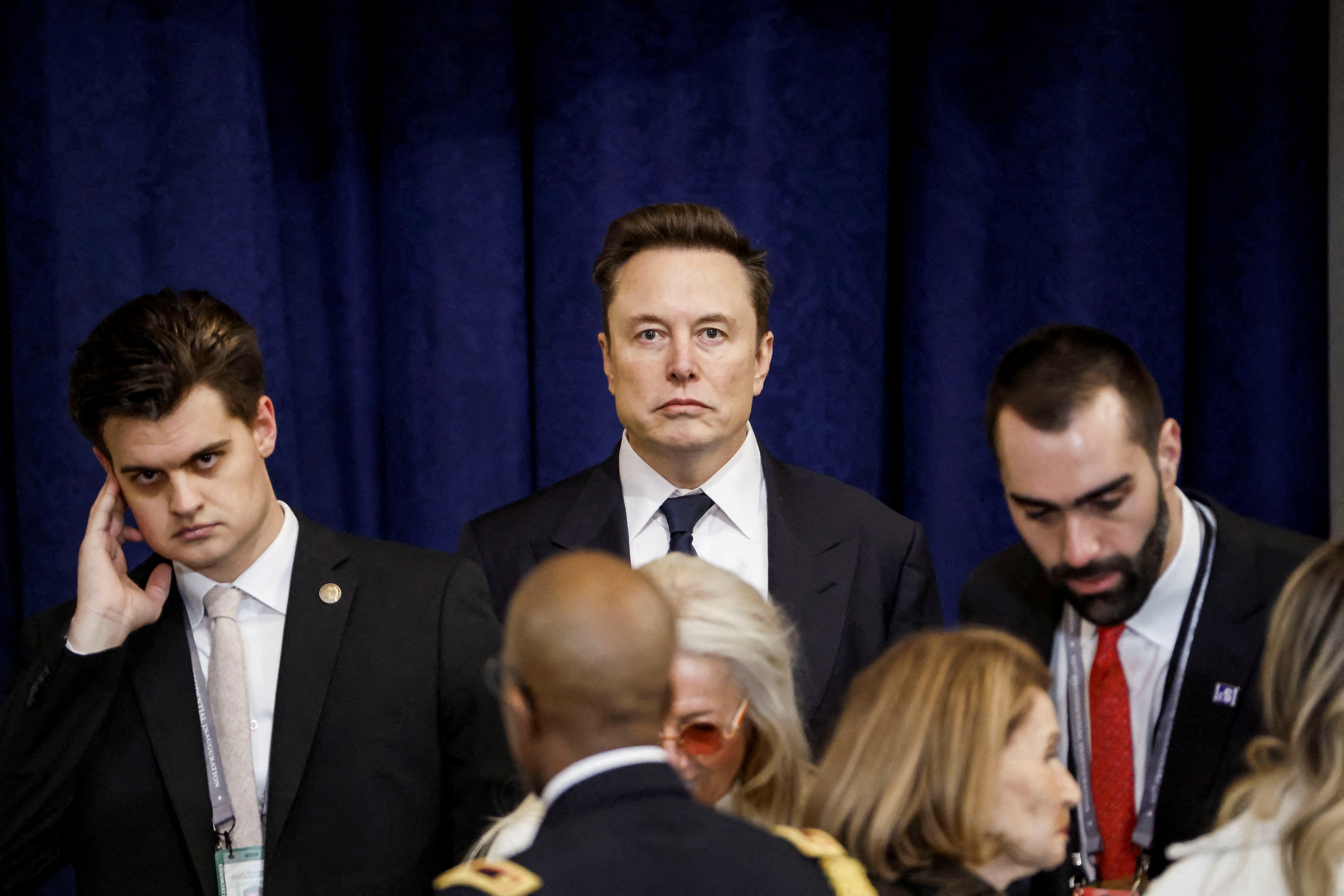January 22, 2025
On his second day in office, President Donald Trump hosted tech industry leaders at the White House to announce “Stargate,” a $500 billion AI infrastructure project. The initiative, led by OpenAI, Oracle, and SoftBank aims to utilize private-sector funding to build 20 new data centers over four years. It does not include funding from the federal government, but the support of the federal government is key for the companies, which need power and permission to build on federal land to construct more data centers. The ceremony signaled Trump’s pro-tech stance, but will it be taken down by Trump’s favorite tech-titan, Elon Musk?
In their first public rupture since taking office, Musk threw shade at Stargate on X, casting doubt that the companies had the financing to achieve the project’s goals. The companies have disputed his claim, and skeptics wonder if the spat is a continuation of Musk’s ongoing feud with OpenAI CEO Sam Altman.
“Trump, like Biden before him, is clearly embracing AI as a potential source of economic growth and investment,” says Eurasia Group’s geotechnology expert Scott Bade. “Whether all $500 billion will eventually happen is another question.”
We will be watching whether Trump responds to Musk’s disapproval of the bill, but Bade says the project could face further obstacles: namely, energy.
“Despite moves by Biden last week to ease permitting reforms for AI data centers, energy will still prove an obstacle for a project this massive. That will require further action by the Trump administration.”
Want to stay up to date on the latest AI news? Be sure to subscribe to our tech newsletter, GZERO AI, here.
More For You
The French President Emmanuel Macron (R) welcomes the European Commission President Ursula von der Leyen (L) at the Elysee Presidential Palace.
SOPA images
European Union leaders agreed to move ahead with “Buy European” policies as part of a broader push to de-risk from the US and boost competitiveness amid China’s industrial prowess.
Most Popular
Think you know what's going on around the world? Here's your chance to prove it.
PA via Reuters Ukraine's Vladyslav Heraskevych, with his helmet, which features pictures of people killed in the war with Russia. Heraskevych was ruled out of the Men's Skeleton event by the International Olympic Committee just over an hour before competition began, pictured at the Cortina Sliding Centre, on day six of the Milano Cortina 2026 Winter Olympics, Italy. Picture date: Thursday February 12, 2026.
20: The number of fallen Ukrainian athletes and coaches depicted on a Ukrainian skeleton racer’s helmet at the Winter Olympics, which prompted the International Olympic Committee (IOC) to disqualify him on Thursday.
Russian President Vladimir Putin attends his annual end-of-year press conference and phone-in in Moscow, Russia December 19, 2025.
Sputnik/Alexander Kazakov/Pool via REUTERS
The Russian government has begun blocking the popular messaging apps WhatsApp and Telegram in a sweeping crackdown aimed at forcing Russians to use a state-backed alternative called MAX, which critics say would enable censorship and surveillance.
© 2025 GZERO Media. All Rights Reserved | A Eurasia Group media company.
